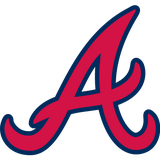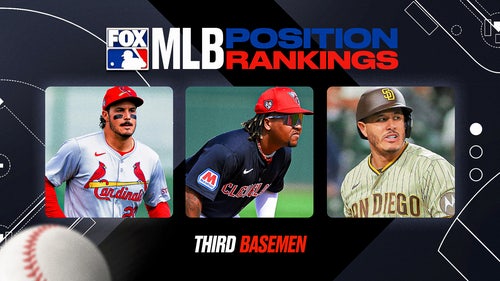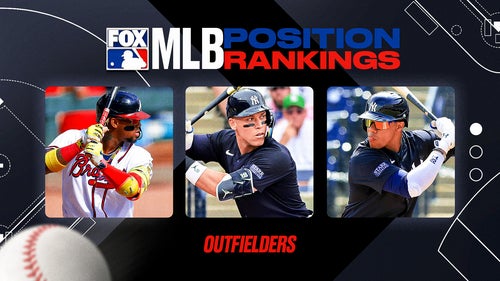
Column: Baseball without the knuckler would be a real shame
The knuckleball has always been a bit of oddball - the butt of jokes, the object of endless curiosity, a talismanic pitch understood by only a few.
It could soon be extinct in the big leagues.
What a shame that would be.
As the regular season ends and we begin the road to the World Series, it's worth noting that knuckleballer extraordinaire R.A. Dickey - the guy who largely carried on the legacy of this most unusual of pitches - might've taken the mound for the final time.
He'll be 43 in another month and has talked openly about the prospect of retirement, even though he had a decent enough season for the lowly Atlanta Braves (10-10 with a 4.26 ERA).
The only other knuckleballer in the majors this season was Boston's Steven Wright, but a knee injury sidelined him after just five April starts. While he was an All-Star in 2016, going 13-6 with four complete games, who knows what the future holds for a 33-year-old journeyman whose career record outside of that one magical season is 8-8 with a 5.22 ERA?
Beyond those two, the future of the knuckleball looks bleak.
A few minor-leaguers have tried it out in recent years, largely with an eye toward extending their floundering careers, but none seems likely to reach the majors. First baseman Dan Johnson had hoped the knuckler might be his unlikely ticket back to the big leagues in his late 30s, but he was last seen bouncing around Mexico and the independent leagues. Former Giants closer Brian Wilson, out of baseball since 2014 because of injuries, talked hopefully in the spring of a knuckler-based comeback.
He wasn't heard from again.
At the very least, this pitch that flutters and dances like no other is on the endangered list.
''I think it's a dying art,'' Dickey conceded. ''It's sad to think about a game without that certain uniqueness to it.''
As far back as the turn of the last century, essentially the start of baseball's modern era, there's always been at least one knuckleballer toiling in the big leagues each season. Heck, the Washington Senators had four of `em in 1945, surely causing all kinds of headaches for their poor ol' catchers.
The peak came in 1970, when there were seven - Hall of Famers Phil Niekro and Hoyt Wilhelm, Phil's little brother Joe Niekro, then-rookie Charlie Hough, Wilbur Wood, Jim Bouton and Eddie Fisher. They combined for 47 wins and 44 saves that year.
None of them were Johnny-come-latelies to the unusual pitch.
''You don't pick it up overnight,'' said Phil Niekro, who had 318 career wins and pitched until he was 48. ''You've got to really commit to that knuckleball. It takes time, just like anything else. You just don't have the time. You get into a little trouble and say, `I'll go back to the fastball.' You can't do that. You've got to really commit to it.''
Even at their peak of acceptance, knuckleballers were never part of the mainstream.
That was a big part of their charm.
Unlike those who can whip it up to the plate at 100 mph, they had to prove themselves over and over again. There were always skeptics who viewed them as nothing more than fluky major leaguers, even those who hung around as long as the Niekros (Joe pitched until he was 43) or Wilhelm (who was 16 days shy of his 50th birthday when he threw his last pitch) or Hough (a 25-year career in the big leagues that lasted until he was 46). There were amusing stories of catchers wearing oversized gloves trying desperately to corral the unpredictable pitch, but many managers didn't think it was worth the risk of all those passed balls, wild pitches and bruised egos.
Dickey has no doubt he could keep pitching effectively for a few more years.
He's just not sure he wants to.
''If I did not continue to play, it would be because our family decided it wasn't the best thing,'' Dickey said. ''I've drug my kids all over the world playing baseball for 21 years. You know, there comes a time they deserve their dad to be around. We're trying to figure out what the right timing for that is. If we decide as a group it's fine and we want to keep going and they like the lifestyle, that's the decision we'll make.
''But I certainly feel I have a lot more in me, yes.''
If Dickey chooses to hang it up, he's hopeful that Wright will carry on this wacky lineage for a few more years.
He may be 33, but that's still young in knuckleballer years - so much so that Dickey calls him that ''kid in Boston.''
''If he can get healthy, I think he's got a real chance to be good. Hopefully,'' Dickey said. ''I was the only one for a while, and Steven kind of stepped up. If you can keep being consistent with an inconsistent pitch, that's the whole thing. You have to convince the world you can throw this crazy, chaotic, moving pitch for strikes and the more you can do that, the more you show organizations it's a worthy thing to have. That's the real trick.''
Unfortunately, we've entered an era when the knuckler is viewed as an act of desperation more than a legitimate big league pitch. Dickey, who was born without an ulnar collateral ligament in his right elbow, took it up as his only real option of staying in the majors. Tim Wakefield was a light-hitting second baseman with little chance of getting a call to the Show when he started throwing the knuckler.
No one really takes it up when they're a kid anymore, as the Niekros did when taking lessons from their father in the backyard. These days, with sabermetrics and endless computer programs designed to remove as much uncertainty from the game as humanly possible, the knuckler just doesn't fit in except for guys fooling around with it on side during pre-game warmups.
That's just for laughs, not to make a living.
''It takes a unique and special athlete to become a knuckleball pitcher,'' said Colorado Rockies manager Bud Black, a former big league pitcher. ''There are a lot of hard knocks along the way. I just hope there are certain players out there who are willing to go through that. I think it's rare that it's taught in high school or college. It's up to the pitcher to make that transition, and it takes a lot of work.''
Let's hope there's some young kid out there willing to put in the time.
Let's hope this isn't the end of the knuckleball.
If nothing else, think of all the jokes we'd be missing out on.
Like Bob Uecker's line, when asked how he caught the knuckler:
''Wait until it stops rolling,'' the ex-catcher replied, ''and then pick it up.''
---
Paul Newberry is a sports columnist for The Associated Press. Write to him at pnewberry(at)ap.org or at www.twitter.com/pnewberry1963 . His work can be found at https://apnews.com/search/paul%20newberry
---
AP Sports Writers Charles Odum in Atlanta and Pat Graham in Denver contributed to this report.
---
For more AP baseball coverage: https://apnews.com/tag/MLBbaseball






